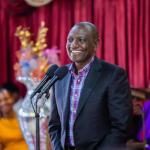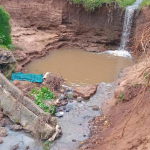In the last general election, Kenya had a chance to address a crucial international obligation advocating for free education for all, a fundamental aspect of respecting human rights. Raila Odinga, the Azimio la Umoja candidate, stirred significant debate with his campaign promise to provide free basic and higher education for everyone. Critics questioned how such a policy could be funded in a developing country grappling with other essential needs, like healthcare.
Despite the promise, Raila was defeated by Kenya Kwanza’s William Ruto, who also pledged to offer free education, aligning with the same core principle.
However, the debate on implementing free education for all persists. There are concerns about a new funding model that some view as discriminatory and unattainable, leading to student protests demanding a fair and inclusive approach.
Kenya already has several funding mechanisms in place, including the Higher Education Loans Board, County Government Bursaries, the National Government Affirmative Action Fund, the Presidential Secondary School Bursary, the Kenya Institute of Social Work and Community Development, and the Presidential Bursary Scheme for Orphans and Vulnerable Students. These funds, if properly managed and combined, could potentially support a universal free education system.
Countries such as Germany, Finland, Slovakia, Norway, Belgium, Denmark, Poland, the Netherlands, and Spain successfully offer free university education funded through public resources. While no African country has yet ventured into this area, Kenya’s existing subsidies for primary and secondary education suggest that achieving free higher education is within reach with a well-structured policy and effective use of available resources.
An immediate official policy on public corruption could be instrumental in curbing the estimated 10% of the national budget believed to be misappropriated by those managing public funds. According to a 2019 report, $1.4 billion was stolen from government coffers, and this amount may have significantly increased over the years.
To fund university education, the state should develop a policy allowing the admission of qualified self-sponsored students who have met the required standards. This program could generate additional resources for universities, helping to subsidize regular student education and make it accessible for all.
Cost-cutting measures on non-essential government expenditures, such as extravagant foreign and local travel, could save billions of shillings. These savings could then be redirected towards high-priority education programs to support free education.
Additionally, revising exorbitant sitting allowances for some state officers, which are often unnecessary, could further free up resources to improve access to both basic and higher education.
In countries with free education, extravagant public lifestyles are rare. For instance, in the Netherlands, top government officials cycle to work, in Norway they use scooters, and in Belgium, policymakers and state officers use the subway. Conversely, in Kenya, state officers often use luxury vehicles, and helicopter rides have become a common necessity for many in high public offices.
Given this context, the recent decision by the National Assembly, under Speaker Moses Wetang’ula, to discuss the merger of key public education financing programs is commendable. Education Cabinet Secretary Julius Ogamba has also indicated that discussions will soon begin on university education funding. This presents a significant opportunity to realize the goal of free education for all.



